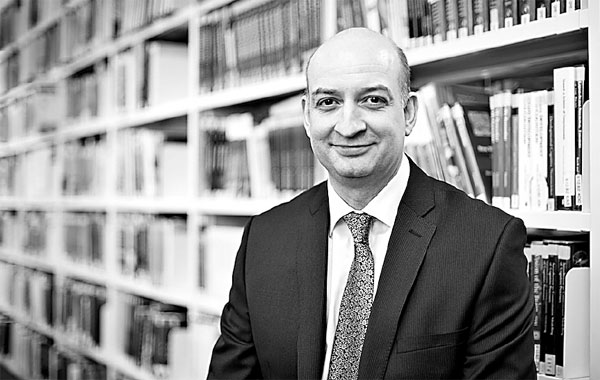All about trust
By Wang Mingjie (China Daily) Updated: 2016-12-30 07:01A China Friendship Award winner reimagines approaches to relations, Wang Mingjie reports in London.
When London South Bank University's vice-chancellor David Phoenix brought an unconventional two-page-long partnership agreement back from his trip to China, his legal team was concerned.
He says the importance of doing business with Chinese is to build trust and relationships.
"I do not think 20 pages of agreement would make a difference if the trust is not there," he says.
Against the backdrop of the Brexit, Phoenix says that in order for two countries to strengthen higher-education collaborations, both China and the United Kingdom should consider how to build mutual trust and understanding holistically.
"We should identify key development programs, such as the nuclear program that has been launched, and identify key areas of global challenges that we could work together through science and innovation," he says.
"For example, China is growing very fast in nanoscience and nanotechnology and we could potentially look into the areas in water purification to link the technology," he explains.
Culture is also an important element, he says, noting that if a business from the UK is going to work in China, business leaders must understand how to access the Chinese market and how operations work in China.
In recognition of his contributions in both science and culture, this year Phoenix, along with another 49 peers, was awarded the prestigious Chinese Government Friendship Award, the highest honor given by the Chinese government to foreigners for their contributions to the country.
Phoenix studied biochemistry and obtained his bachelor's degree from the University of Liverpool in 1987, followed by a doctorate.
He continued to study part time and obtained a bachelor's degree from the Open University in mathematics in 1980s.
With more than 250 publications to his credit, Phoenix is a visiting professor at King's College London and Sichuan University, China, as well as a Fellow of the Royal Society of Chemistry, the Society of Biology, the Institute of Mathematics and Its Applications, and the Royal Society of Medicine.
His contributions to the field of biochemistry were recognized by the mayor of Shenzhen, who in 2010 invited him to set up and lead the UCLan Biomedical Technology research institute, which focuses on areas of nanoscience and nano-engineering.
Phoenix has long showed great enthusiasm for educational and cultural exchanges between China and the UK.
When serving as the deputy vice-chancellor of the University of Central Lancashire, he played an active role in helping the Confucius Institute conduct its work.
After being appointed as vice-chancellor of London South Bank University, he assumed the position of board chair of the Confucius Institute for Traditional Chinese Medicine and vigorously promoted the work of the institute on all fronts.
The 50-year-old is one of the few vice-chancellors who assigned a separate building dedicated to the operation of a Confucius Institute, which he says is a statement showing his commitment to building relationships with China.
"The Confucius Institute as a platform to promote culture alone is not sustainable," he says.
His long-term vision is to combine the elements of a cultural hub, research lab and business center that in turn promotes China's image, enhances the university's reputation and benefits the business.
Under his leadership, the CITCM won the title of "Model Confucius Institute". It was the first to receive the accolade in the UK.
Phoenix has traveled to China many times and has visited many cities.
But he says it's hard to choose a favorite city as "China is not just one country where everything is the same".
He is fascinated by the speed of the development in Shanghai and particularly interested in the history in Beijing.
He's fond of the spicy food in Sichuan province and impressed with the Three Gorges in Chongqing.
China's food culture is something he finds attractive, as the role of dinner is not just about what people eat, but is more about building trust and understanding.
"I quite like that, because whenever you develop new projects, one thing you can guarantee is that something will go wrong at some stage, and if you trust each other and then something goes wrong, then you work together to fix it," he says.
Contact the writer at wangmingjie@mail.chinadailyuk.com
|
David Phoenix, vice-chancellor of London South Bank University, is devoted to cultural exchanges between China and the United Kingdom. Provided To China Daily |
- 'Cooperation is complementary'
- Worldwide manhunt nets 50th fugitive
- China-Japan meet seeks cooperation
- Agency ensuring natural gas supply
- Global manhunt sees China catch its 50th fugitive
- Call for 'Red Boat Spirit' a noble goal, official says
- China 'open to world' of foreign talent
- Free trade studies agreed on as Li meets with Canadian PM Trudeau
- Emojis on austerity rules from top anti-graft authority go viral
- Xi: All aboard internet express












